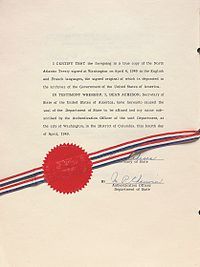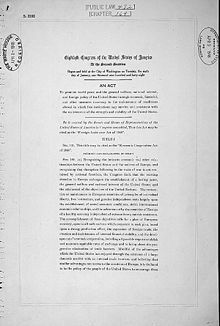This is your morning Open Thread. Pour your favorite beverage and review the past and comment on the future.
Find the past “On This Day in History” here.
April 6 is the 96th day of the year (97th in leap years) in the Gregorian calendar. There are 269 days remaining until the end of the year.
On this day in 1896, the Olympic Games, a long-lost tradition of ancient Greece, are reborn in Athens 1,500 years after being banned by Roman Emperor Theodosius I. At the opening of the Athens Games, King Georgios I of Greece and a crowd of 60,000 spectators welcomed athletes from 13 nations to the international competition.
The 1896 Summer Olympics, officially known as the Games of the I Olympiad, was a multi-sport event celebrated in Athens, Greece, from April 6 to April 15, 1896. It was the first international Olympic Games held in the Modern era. Because Ancient Greece was the birthplace of the Olympic Games, Athens was perceived to be an appropriate choice to stage the inaugural modern Games. It was unanimously chosen as the host city during a congress organized by Pierre de Coubertin, a French pedagogue and historian, in Paris, on June 23, 1894. The International Olympic Committee (IOC) was also established during this congress.
Despite many obstacles and setbacks, the 1896 Olympics were regarded as a great success. The Games had the largest international participation of any sporting event to that date. The Panathinaiko Stadium, the only Olympic stadium used in the 19th Century, overflowed with the largest crowd ever to watch a sporting event. The highlight for the Greeks was the marathon victory by their compatriot Spiridon Louis. The most successful competitor was German wrestler and gymnast Carl Schuhmann, who won four events.
After the Games, Coubertin and the IOC were petitioned by several prominent figures including Greece’s King George and some of the American competitors in Athens, to hold all the following Games in Athens. However, the 1900 Summer Olympics were already planned for Paris and, except for the Intercalated Games of 1906, the Olympics did not return to Greece until the 2004 Summer Olympics, some 108 years later.
During the 18th century, several small-scale sports festivals across Europe were named after the Ancient Olympic Games. The 1870 Olympics at the Panathenaic stadium, which had been refurbished for the occasion, had an audience of 30,000 people. Coubertin adopted Dr William Penny Brooke‘s idea to establish a multi-national and multi-sport event-the ancient games were in a sense international, because various Greek city-states and colonies were represented, but only free male athletes of Greek origin were allowed to participate. In 1890, Coubertin wrote an article in La Revue Athletique, which espoused the importance of Much Wenlock, a rural market town in the English county of Shropshire. It was here that, in October 1850, the local physician William Penny Brookes had founded the Wenlock Olympian Games, a festival of sports and recreations that included athletics and team sports, such as cricket, football and quoits. Coubertin also took inspiration from the earlier Greek games organized under the name of Olympics by businessman and philanthropist Evangelis Zappas in 1859, 1870 and 1875. The 1896 Athens Games was funded by the legacies of Evangelis Zappas and his cousin Konstantinos Zappas and by George Averoff who had been specifically requested by the Greek government, through crown prince Constantine, to sponsor the second refurbishment of the Panathinaiko Stadium. This the Greek government did despite the fact that the cost of refurbishing the stadium in marble had already been funded in full by Evangelis Zappas forty years earlier.
On June 18, 1894, Coubertin organized a congress at the Sorbonne, in Paris, to present his plans to representatives of sports societies from 11 countries. Following his proposal’s acceptance by the congress, a date for the first modern Olympic Games needed to be chosen. Coubertin suggested that the Games be held concurrently with the 1900 Universal Exposition of Paris. Concerned that a six-year waiting period might lessen public interest, congress members opted instead to hold the inaugural Games in 1896. With a date established, members of the congress turned their attention to the selection of a host city. It remains a mystery how Athens was finally chosen to host the inaugural Games. In the following years both Coubertin and Demetrius Vikelas would offer recollections of the selection process that contradicted the official minutes of the congress. Most accounts hold that several congressmen first proposed London as the location, but Coubertin dissented. After a brief discussion with Vikelas, who represented Greece, Coubertin suggested Athens. Vikelas made the Athens proposal official on June 23, and since Greece had been the original home of the Olympics, the congress unanimously approved the decision. Vikelas was then elected the first president of the newly established International Olympic Committee (IOC).

 On this day in 1774,
On this day in 1774, 
 On this day in 1948,
On this day in 1948, 
Recent Comments